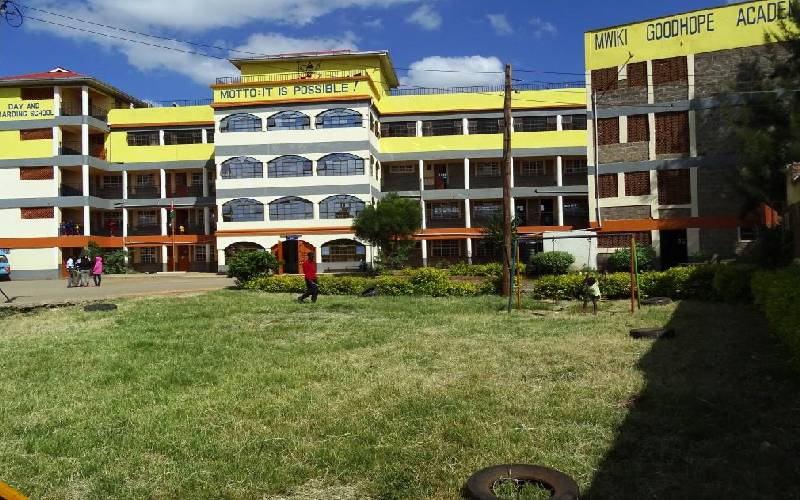×
The Standard e-Paper
Kenya’s Boldest Voice

They say that tough times never last but tough people do. And no one knows this better that RoseAnn Maina, the principal and founder of Mwiki GoodHope Academy (MGA). Today, the school is a raging success, and in 2015 national exams, it was ranked top in Nairobi. They also produced the third-best student nationally. In 2019, 40 out of the 70 candidates had over 400 marks out of 500. The school has expanded to two other centres and a college. But it took toiling to get to this elevated place. RoseAnn shares her journey.